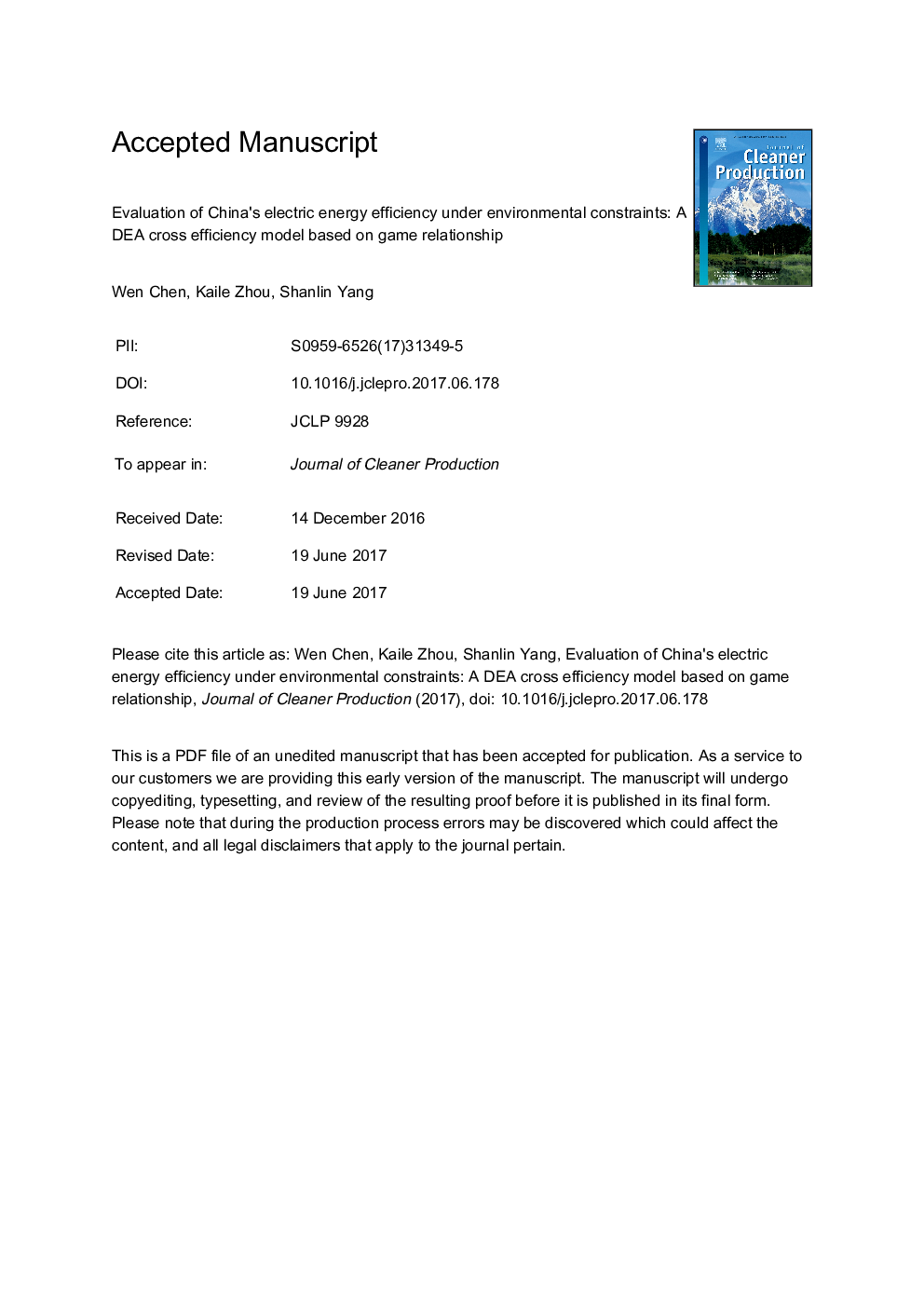| Article ID | Journal | Published Year | Pages | File Type |
|---|---|---|---|---|
| 5480420 | Journal of Cleaner Production | 2017 | 24 Pages |
Abstract
The traditional data envelopment analysis (DEA) model ignores the cooperation relationship among decision making units (DMUs), so it is difficult to evaluate the DMUs efficiency reasonably. In this study, we use a cross efficiency model considering the game relationship of DMUs to evaluate and analyze the provincial electric energy efficiency of China. The power industry panel data of China's 30 provinces from 2005 to 2014 are used to evaluate the energy efficiency of China's provincial power industry under environmental constraints. In addition, based on the obtained values of electric energy efficiency, clustering analysis is implemented and the regional similarity in electric energy efficiency is analyzed. The results indicate that, in the past decade, China's provincial electric energy efficiency has not significantly improved and efficiency values have a certain degree of volatility, especially in western China. In general, the electric energy efficiency of eastern China is significantly higher than central and western China. The clustering analysis further demonstrates that there is no polarization phenomenon in China's electric energy efficiency. In recent years, the electric energy efficiency of western China has been greatly improved, with significant volatility. It reveals that the electric energy efficiency of western China is sensitive to the environment. The implementation of energy policies should be adapted to local conditions. In the process of formulating policies for improving electric energy efficiency, the provincial government should improve the regional opening-up layout and establish effective coordination mechanisms among different regions.
Keywords
Related Topics
Physical Sciences and Engineering
Energy
Renewable Energy, Sustainability and the Environment
Authors
Wen Chen, Kaile Zhou, Shanlin Yang,
